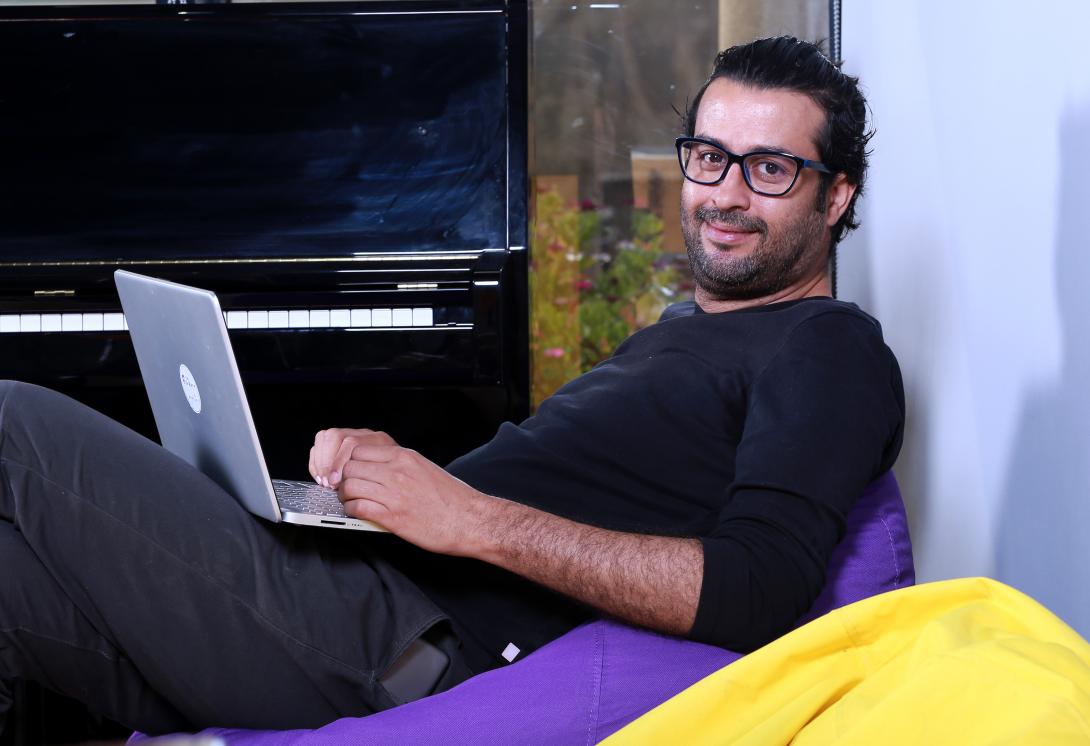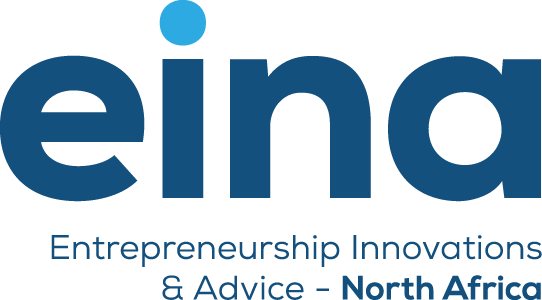Fabskill (Tunisia), cutting-edge technology for better employment opportunities

Business start-up assistance, an asset
Béchir Afifi is a computer engineer. Formerly a professional in a Tunisian ministry and a part-time university lecturer, he and two friends decided to embark on the adventure of entrepreneurship: in December 2018, the three of them created Fabskill, a recruitment web platform leveraging cutting-edge technologies.
In 2022, the company reached its first million Tunisian dinars in sales and broke even. With some 25 employees, Fabskill already has over 600 customers, including banks and telecoms companies in the IT sector.
Fabskill received decisive support from Souk At-tanmia, a program created in 2012 by some twenty players from the world of development, public and private institutions, civil society, and academia. It is hosted by the African Development Bank, one of its main donors. Souk At-tanmia offers concrete support in the form of financing and mentorship, in the form of training, coaching, mentoring, market access services and networking. This program has directly supported nearly 800 entrepreneurs in North Africa (Egypt, Morocco, and Tunisia).
Subsequently, in 2019, the Bank set up the Entrepreneurship Innovations and Advice - North Africa platform (EInA). The aim is to promote sustainable job creation in North Africa through operational innovations in public policy to support entrepreneurship.
EInA spoke to Béchir Afifi about his experience as an entrepreneur.
Could you first describe Fabskill, its background and profile?
Fabskill is a free web platform offering an innovative recruitment process based on artificial intelligence. Fabskill aims to provide innovative solutions to the issues associated with job interviews through a matching system between employers and candidates.
The platform provides candidates with a better match between their skills and the job market. Thanks to deferred or live video interviews, it offers the same opportunities for candidates from inland areas or for people with reduced mobility, avoiding the pitfalls of scheduling conflicts and time-consuming travel.
Our platform offers all users fair treatment since all candidates answer interviews under similar conditions: same questions and same amount of time allocated to answers.
From the recruiter's point of view, video interviews help to appreciate the candidate's personality and motivation. The digitization of the recruitment process, based on artificial intelligence, facilitates the detection of the right profiles, and saves companies considerable costs.
As a technology person, why did you choose this specific field of recruitment?
We noticed a gap in the recruitment process in Tunisia. On the one hand, people who can't get a job; on the other, recruiters who think it's a pity not being able to meet their recruitment needs.
As for candidates, they want feedback on their applications. With our platform, we provide a solution to these challenges, by automating all the tasks linked to the value chain of this activity.
In doing so, we believe we are making a tangible contribution to employment, by accelerating and even professionalizing the process of filling vacancies in the job market. Job hunting should no longer be a chore, either for employers or candidates.
What motivated you to make the leap from being a civil servant and teacher, with a steady job for 10 years, to becoming an entrepreneur?
That's a very good question! I did enjoy a good start in my career, but I wondered if I wanted to do this for the rest of my life. I'm a man of technology, data manipulation, statistics, and mathematics, and I wanted to put these skills to greater use.
Yes, I was apprehensive about taking the plunge, as I had family commitments and several other responsibilities. I started out as a freelancer, and that worked out well. It gave me the confidence to take the plunge and build something. Also, we were three friends, we started out together, so we encouraged each other.
How have you been helped by external organizations, such as the African Development Bank's Souk At-tanmia program?
Souk At-tanmia was the key program that enabled us to take the decisive step into entrepreneurship. It was our catalyst, playing a decisive role in terms of financing, coaching and support. Souk At-tanmia was a competitive process, with submission of proposals, and selective evaluation. We worked our way through the process. All in all, it acted as a financial lever, enabling us to mobilize other funds from other players in the financial sector. This support reassured us about the value of our project and was a fundamental first step in our approach. Souk At-tanmia got the ball rolling. This kind of support is essential in the entrepreneurial ecosystem.
How would you describe your entrepreneurial experience in Tunisia?
There's a lot of goodwill. But there's also a ceiling: restrictive regulatory measures, restrictive financial requirements, non-convertibility of currency. On the other hand, doing business here is not expensive, and there's a lot of talent and desire to succeed.
What are your development plans for the coming years?
We're currently in an expansion phase. We want to establish roots in Morocco, which has a similar business environment to Tunisia. Operating in another country should facilitate access to financing.
We also have our sights set on a presence in East Africa: this is a region with a high population base and regional mobility that facilitates remote working.
What do you consider to be the main qualities of an entrepreneur?
I'm involved as a coach in several entrepreneur support programs in Tunisia, so I've been able to reflect on this aspect. The main qualities in my opinion are resilience, adaptability, designing a product or service that meets a concrete market need, and quality of execution.
In our case, shortly after our launch, we were tested on our resilience and adaptability; we had to cope with a two-year Covid-19 pandemic: employment and pandemics don't mix! But, paradoxically, with the virus, and therefore with people suddenly falling ill, employers had urgent recruitment needs, and they called on us.
We also took advantage of the situation to set up Job Fairs, 100% on a virtual mode. They were a great success. We organized 80 of them in two years! We even set an African record: 110,000 participants in one day. Some 30 servers were mobilized for this purpose.
Another piece of advice I'd give is to carefully identify the need that the product or service is going to fill. You can develop great stuff, but it won't be useful, and nobody buy it.
Finally, the other key to success is execution. I often say that all technologies have already been thought out: the big difference is that some people act, execute, but the majority don't. And even for those who do, some do it better than others. While it's important to design your product or service carefully, it's also important to understand that your offering will improve through iteration, with day-to-day improvements as it goes to market.
What's the most rewarding part of the entrepreneurial experience?
For me, it's self-realization. Fulfillment. Entrepreneurship is a journey, where the journey counts more than the destination. It's an intense journey, full of challenges, but it is well worth it!
Fabskill
https://fabskill.com/fr
Arabic version of this article:
https://www.afdb.org/ar/success-stories/mqbl-m-bshyr-fyfy-lshryk-lmwss-wlryys-ltnfydhy-lshrk-fbskyl-twns-63038
Portugese version of this article:
https://www.afdb.org/pt/success-stories/entrevista-com-bechir-afifi-cofundador-e-diretor-executivo-da-tunisina-fabskill-63037
